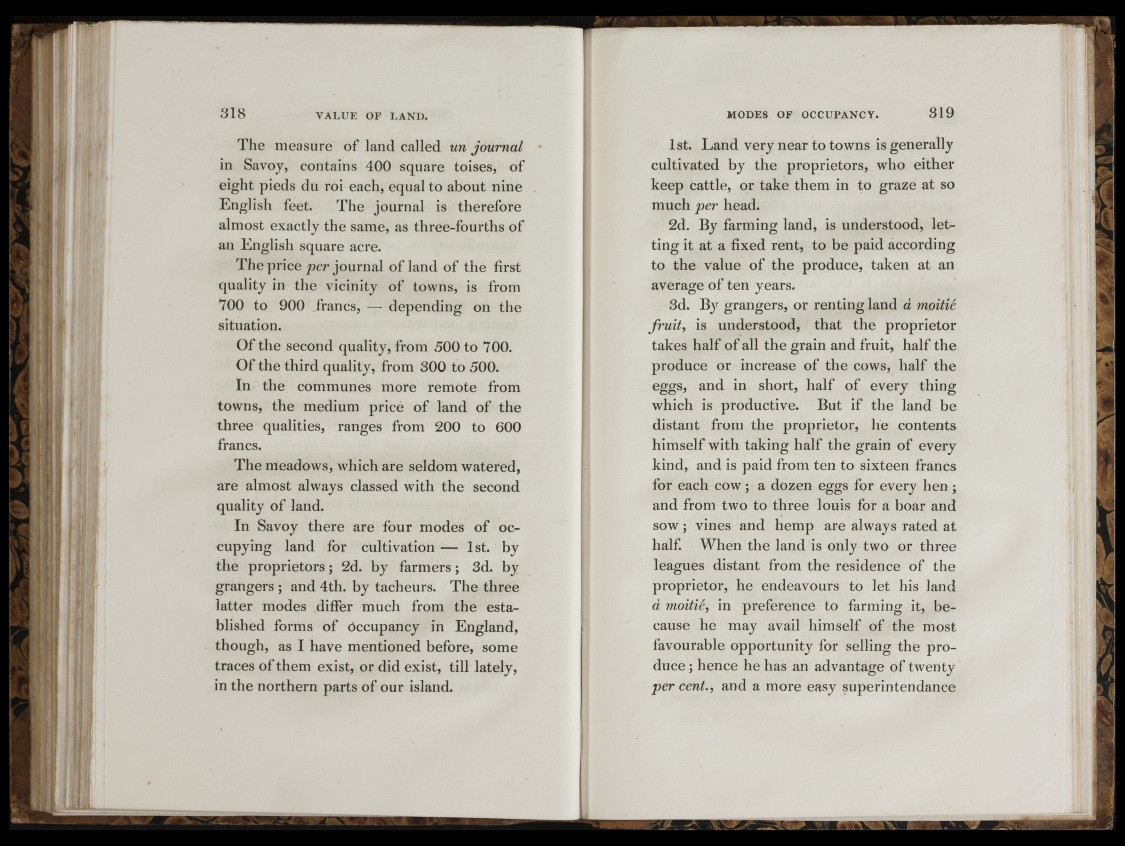
The measure of land called un journal
in Savoy, contains 400 square toises, of
eight pieds du roi each, equal to about nine
English feet. The journal is therefore
almost exactly the same, as three-fourths of
an English square acre.
The price per journal of land of the first
quality in the vicinity of towns, is from
700 to 900 francs, — depending on the
situation.
Of the second quality, from 500 to 700.
Of the third quality, from 300 to 500.
In the communes more remote from
towns, the medium price of land of the
three qualities, ranges from 200 to 600
francs.
The meadows, which are seldom watered,
are almost always classed with the second
quality of land.
In Savoy there are four modes of occupying
land for cultivation — 1st. by
the proprietors; 2d. by farmers; 3d. by
grangers ; and 4th. by tacheurs. The three
latter modes differ much from the established
forms of occupancy in England,
though, as I have mentioned before, some
traces of them exist, or did exist, till lately,
in the northern parts of our island.
1st. Land very near to towns is generally
cultivated by the proprietors, who either
keep cattle, or take them in to graze at so
much per head.
2d. By farming land, is understood, letting
it at a fixed rent, to be paid according
to the value of the produce, taken at an
average of ten years.
3d. By grangers, or renting land à moitié
fruit, is understood, that the proprietor
takes half of all the grain and fruit, half the
produce or increase of the cows, half the
eggs, and in short, half of every thing
which is productive. But if the land be
distant from the proprietor, he contents
himself with taking half the grain of every
kind, and is paid from ten to sixteen francs
for each cow ; a dozen eggs for every hen ;
and from two to three louis for a boar and
sow ; vines and hemp are always rated at
half. When the land is only two or three
leagues distant from the residence of the
proprietor, he endeavours to let his land
à moitié, in preference to farming it, because
he may avail himself of the most
favourable opportunity for selling the produce
; hence he has an advantage of twenty
percent., and a more easy superintendance